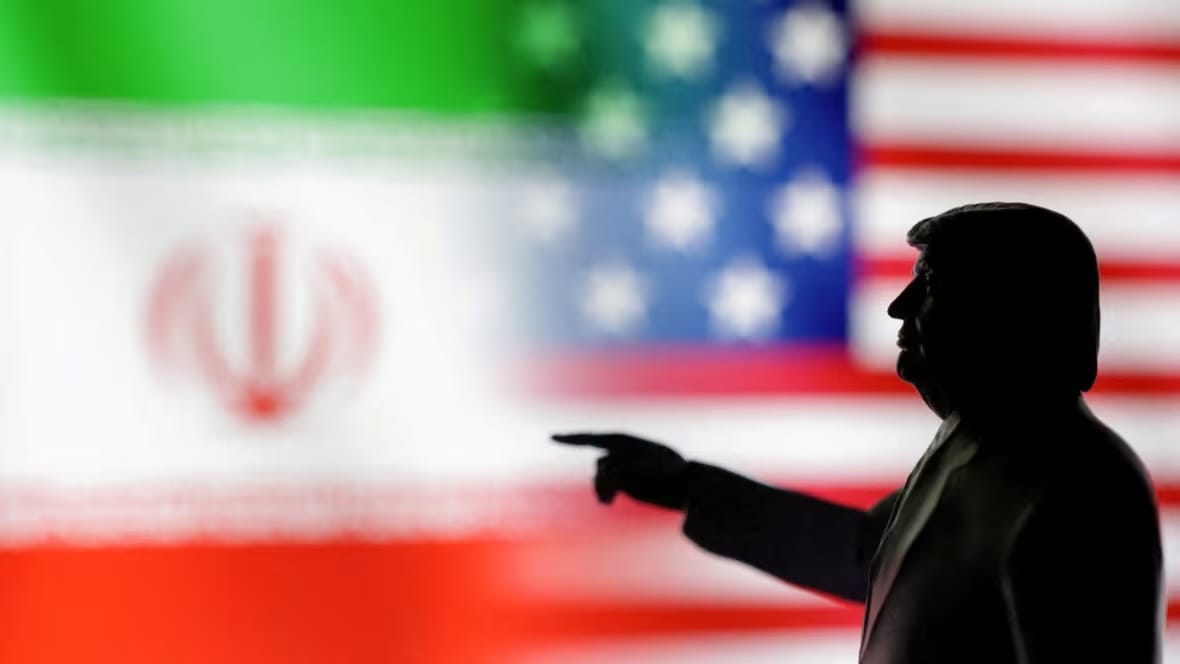From "Negotiator in chief" to Peril: Trump, Iran, and the Return of a Familiar Playbook

“The world aches for somebody who cools tensions in the room and checks everybody's egos."
These words, often echoed by Trump supporters, were a rallying cry against the hawkish neoconservatives of the Republican establishment. Many pointed to Trump’s first term (2016–2020) as a rare period in recent U.S. history in which no major new wars were initiated. A businessman who saw global conflict as bad for business, Trump was praised for his non-interventionist instincts and his apparent desire to scale back endless foreign entanglements.
Fast forward to 2025. Trump has returned to the White House, and while he cannot be blamed for the Ukraine-Russia war or the devastating Israel-Gaza conflict—both of which began before his second term—the bar must now be set by his own promises. During his campaign, he boldly declared, “I will end the war between Russia and Ukraine before I take office.” More than 100 days into his presidency, that promise remains unfulfilled, with little progress to show.
Meanwhile, his administration has thrown unyielding support behind Israel in its ongoing war against Hamas—a campaign many around the world view as a cover for a broader and more brutal campaign against the Palestinian people. The U.S. has continued arms shipments to Israel as civilian casualties mount and Gaza descends further into humanitarian catastrophe.
And now, the Trump administration has escalated matters dramatically. On June 22, 2025, the U.S. launched precision airstrikes on Iran’s nuclear facilities in Fordow, Natanz, and Isfahan—marking a stunning pivot from diplomacy to outright confrontation. What had begun as indirect talks aimed at reviving a nuclear agreement ended in military action designed to dismantle Iran’s enrichment program.
Yes, Iran is a geopolitical adversary to the West, and questions remain about its nuclear ambitions. But are these strikes justified? Could diplomacy truly not yield better results? And, critically, what is the long-term objective of U.S. foreign policy?
What If We Were Iran?
No matter one's stance on the Iranian regime—and for the record, I hold no sympathy for its authoritarianism—it is vital to consider how the situation might look from Tehran's perspective. Iran is not a wealthy power. In 2024, its nominal GDP hovered around $420 billion—less than the annual revenue of Walmart, which stood at $648 billion. Despite this, Iran has managed to build a sophisticated missile program and develop a civilian nuclear infrastructure.
Back in 2015, the Obama administration offered a path out of isolation: a multilateral agreement allowing Iran to enrich uranium under strict international oversight from the International Atomic Energy Agency (IAEA), in exchange for sanctions relief. This deal, known as the Joint Comprehensive Plan of Action (JCPOA), was widely seen as a diplomatic success.
But just three years later, President Trump—encouraged by Israeli lobbyists—unilaterally withdrew the U.S. from the agreement, reimposing crippling sanctions and designating parts of Iran's military as a terrorist organisation. From Iran’s vantage point, the message was clear: diplomacy is unreliable, and trust in the West is misplaced.
Iran, still lacking nuclear weapons, has witnessed the U.S. invade or destabilise nearly every major power in its neighbourhood: Iraq, Afghanistan, Libya, and Syria. Meanwhile, Israel’s Prime Minister Benjamin Netanyahu has spent over three decades warning the world that Iran is only “weeks away” from acquiring nuclear weapons—a refrain that has never materialised. If you were Iran, would you not feel justified in developing strategic depth through proxies like Hezbollah or the Houthis? Would you not pursue deterrence through uranium enrichment?
Secretary of State Netanyahu ?
Marco Rubio, Trump's Secretary of State, has remained mostly in the background. While he previously supported the idea of a renewed nuclear agreement with Iran and worked to engage European allies, he is now better known for slashing foreign aid and sidelining U.S. diplomacy. His quiet stance during the lead-up to the Iran strikes raises serious questions about who is truly steering U.S. foreign policy.

One figure, however, is anything but silent: Benjamin Netanyahu. He stood stoically behind Trump during the latter’s national address, and his fingerprints are all over the current strategy. For decades, Netanyahu has lobbied the U.S. to take military action against Iran—just as he did in 2002, when he told Congress:
"There is no question whatsoever that Saddam is seeking, is working, is advancing towards the development of nuclear weapons… If you take out Saddam’s regime, I guarantee you that it will have enormous positive reverberations in the region."
We now know how disastrously wrong that assessment was. The Iraq War destabilised the region, killed hundreds of thousands, inflated the U.S. deficit, and ultimately paved the way for ISIS.
Repeating Mistakes with Eyes Wide Open
And yet, here we are again. Another Middle Eastern nation, another set of "guarantees," and another act of American military intervention—with Israel once more playing a significant role in pushing for action. That this pattern continues should alarm even the most hardened realists. The consequences are rarely borne by policymakers in Washington or Tel Aviv; they are suffered by civilians in Tehran, Baghdad, Gaza, and beyond.
The West, and especially the United States, risks repeating the same tragic errors that defined the early 21st century: overreach, regime change, and the false belief that force delivers peace. It is astonishing—and deeply concerning—that U.S. foreign policy, rather than learning from these failures, seems once again guided by arrogance, short-term thinking, and a dangerous overreliance on military might.
If America truly wants to lead, it must do so with the humility to reflect, the courage to resist pressure, and the wisdom to prioritise diplomacy over destruction. Because if we keep playing by this script, we already know how it ends.



Comments ()